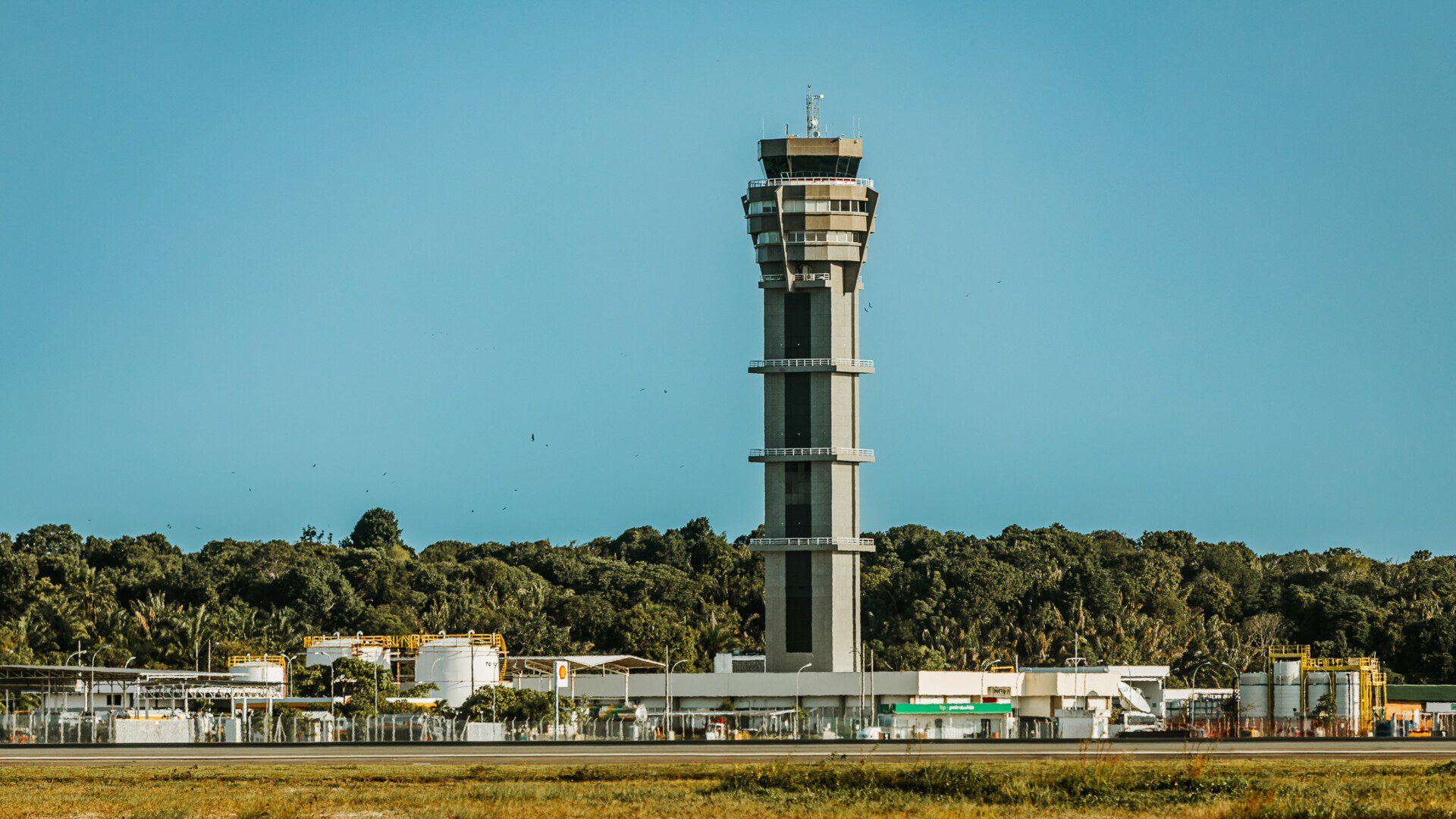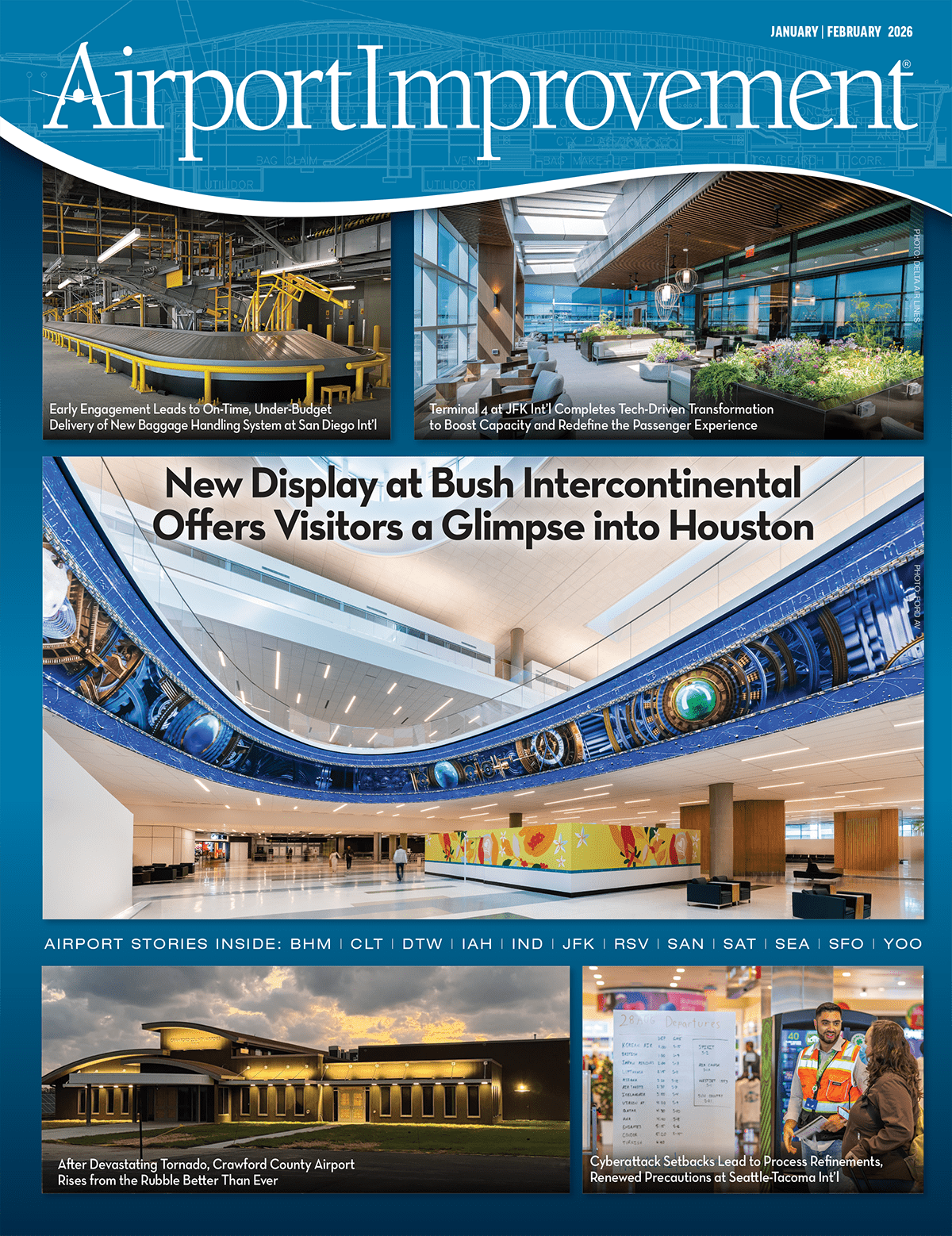
- First airport in the Americas to achieve highest global recognition for airport carbon management
- Level 5 recognizes airport’s net-zero direct emission in 2025 and its pledge to achieve it on scope 3 by 2050
- An achievement illustrating VINCI Airports’ commitment to sustainable and innovative management of airport infrastructure and its contribution to the transition of its stakeholders.
Two years after being among the first airports in the world to achieve ACA Level 5 accreditation at COP28 in Dubai, VINCI Airports announces at COP30 in Belém that Salvador Bahia Airport has become the first airport in Brazil and across the entire American continent to reach Level 5 of the Airport Carbon Accreditation (ACA) – the highest global recognition in airport decarbonisation.
This landmark certification, granted by the Airports Council International (ACI), recognizes the airport’s achievement of net-zero emissions for Scopes 1 and 2, alongside its commitment to reaching net-zero for Scope 3 emissions by 2050 at the latest, through collaboration with partners and stakeholders.
This milestone reflects VINCI Airports’ commitment to decarbonizing its airports operations, addressing both direct emissions on the one hand, but also indirect emissions on the other, by actively engaging suppliers and partners to reduce its environmental footprint.
It’s the result of several actions delivered by Salvador airport teams, notably:
- Solar power generation at two photovoltaic plants, for a total capacity of 6 MWp, supplying electricity both for the airport’s own operations and for cargo facilities operated by third parties
- The exclusive use of 100% renewable energy for all airport operations including tenants’ operations
- The replacement of gas-powered equipment with electric alternatives for tenant activities, including restaurants
- The conversion of the airport’s vehicle fleet to electric or biofuel-powered vehicles.
- Ongoing dialogue with stakeholders to raise awareness and foster joint action on emission reduction
- The offsetting of residual emissions through certified carbon sequestration projects, including support for a 3,879-hectare reforestation initiative in the Corumbá region of Brazil, which — beyond protecting the environment — also generates significant socio-economic benefits for local communities, notably through the creation of local jobs.
Nicolas Notebaert, CEO of Concessions at VINCI and President of VINCI Airports, stated at COP 30: “This milestone marks a major step forward on the American continent in the decarbonisation of our airport activities and aviation as a whole. It reflects the outstanding commitment of our teams and our determination to take decisive action across our airports worldwide.”
In the 14 countries where it operates more than 70 airports, VINCI Airports is committed to a decarbonization approach across its entire value chain.
It aims to achieve net zero emissions for its direct activities by 2030 within the European Union and the United Kingdom, and by 2050 in the rest of the world. With 60 airports accredited, including six airports at the maximum ACA level 5 (in France, Brazil and Portugal), VINCI Airports is the leading international contributor to the ACI’s ACA program, the international framework for airport decarbonisation pathway.


